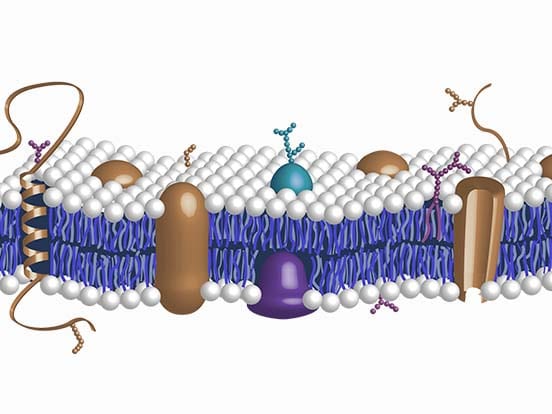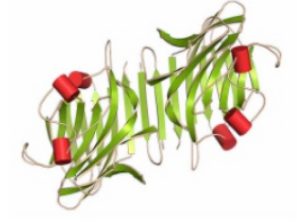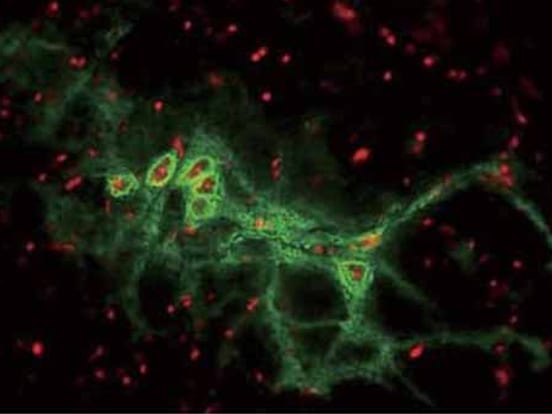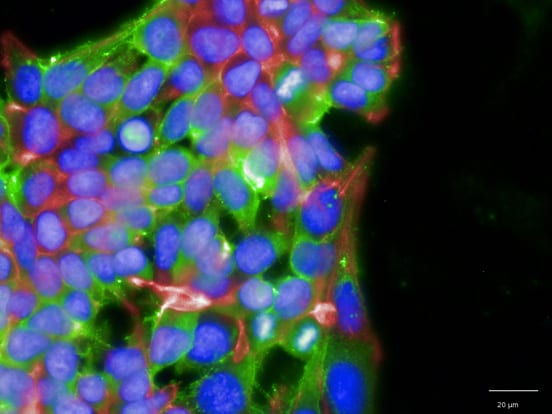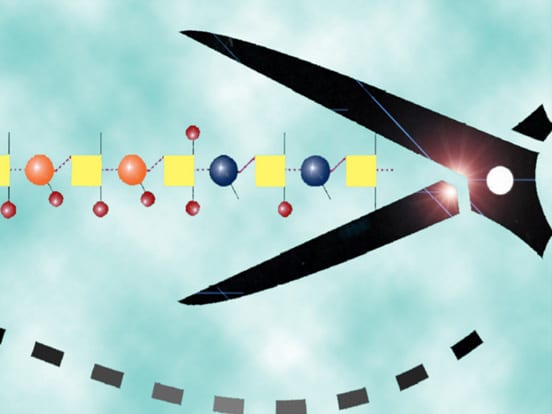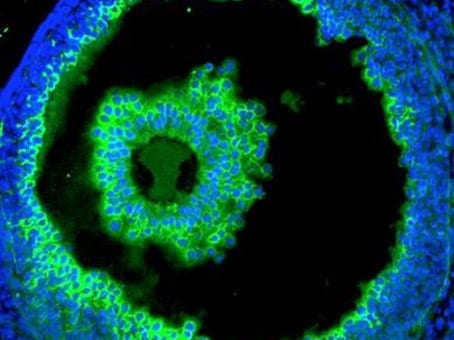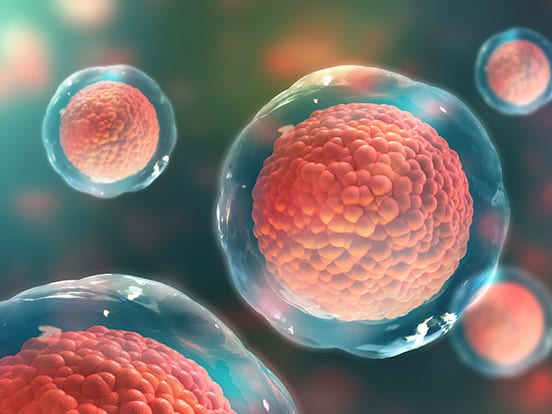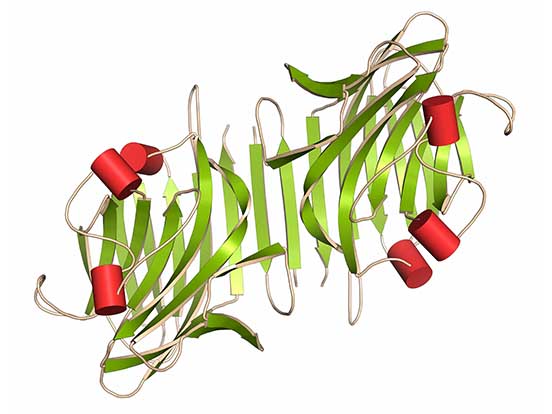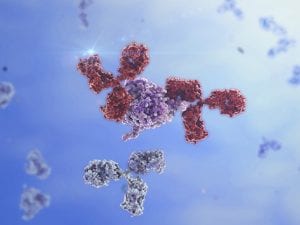
Antibodies
We offer a comprehensive range of monoclonal, polyclonal, and secondary antibodies. All our antibodies provide high levels of specificity and affinity to target antigens. We also provide a range of cell line controls for reliable antibody validation.
Hyaluronic Acid Antibodies Replacement Hyaluronic Acid Binding Protein
Hyaluronan/Hyaluronic Acid (HA) is non-immunogenic, because of its simple, conserved composition and ubiquitous expression in all animals with a developed immune response. As a result, there are no antibodies that specifically recognize HA, so traditional immunological methods of detecting of HA are not possible.
Therefore, we offer biotinylated HABP (Versican G1 domain) which binds specifically to HA and can be used like an antibody to detect and measure HA in ELISA, Immunohistochemistry or Blotting applications. It does not cross-react to other Glycosaminoglycans or to DNA. We introduce HABP in purified and biotinylated forms.
Chondroitin Sulfate Antibodies
Along with our Chondroitinase ABC, we also supply three monoclonal chondroitin sulfate (CS) stub antibodies that recognise unsulfated (0S), 4-sulfated (4S) & 6-sulfated (6S) Chondroitin & Dermatan Sulfate containing proteoglycans, following Chondroitinase ABC digestion of proteoglycans or perineuronal nets.
There is no cross-reaction with hyaluronic acid, dermatan sulfate, keratan sulfate and heparan sulfate. These antibodies can be used to detect target antigen in Immunohistochemistry, ELISA, and Western blotting assays.
Furthermore, a range of purified mouse monoclonal antibodies are available to native (undigested) CS: clone: MO-225, clone: CS-56, Clone: 2H6, and clone: LY111, each uniquely recognizing a validated epitope, allowing the end-user to analyse biologically significant variations in CS structure.
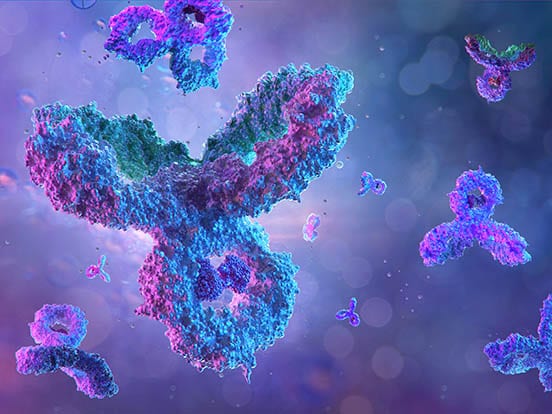
Keratan Sulfate Antibodies
We offer varieties of keratan sulfate (KS) monoclonal antibodies that are tested for use in ELISA, Immunofluorescence, Immunohistochemistry, Radioimmunoassay, and Western Blotting assays. For example, three monoclonal antibodies (Clone R-10G), (Clone 5D4), and (Clone 373E1) are now available.
Heparan Sulfate Antibodies
Heparan Sulfate (HS) is a challenging target for antibody binding, and there are a limited number of effective antibodies available for HSPG research. We supply the three following monoclonal antibodies (mAb): 10E4, 3G10, and JM403, for strong binding in a variety of applications. The 10E4 antibody is now available in biotinylated formats.

Ganglioside and Glycolipid Antibodies
Glycolipids are lipids that have a carbohydrate connected to them via a glycosidic bond and are found on the outer surface of all eukaryotic cell membranes.
They keep the membrane stable and aid cellular recognition. Gangliosides are glycolipids containing one or more sialic acids attached to the sugar chain and are linked to the brain and nervous system. The ganlioside and glycolipid antibodies can be used for immunoassay techniques such as: TLC, FC, ELISA, ICC and IHC.
Sugar Chain mAb Antibodies
The sugar chain antibodies are vital in evaluating the biological function of certain sugar chains. We offer a wide range of sugar chains monoclonal antibodies for glycobiology research. We now provide sugar chains monoclonal antibodies, such as Clone RGM21, RGM22, PGM34, HGM44 and HIK1083. View more
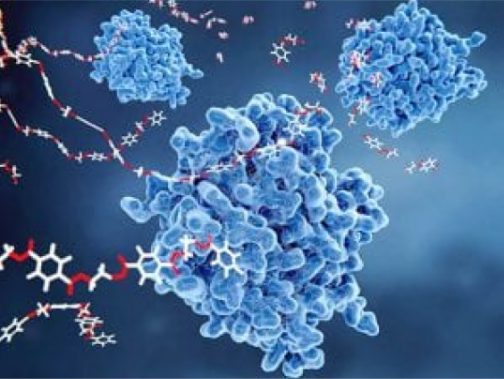
Enzymes
Glycosaminoglycans degrading Enzymes
For glycobiology research and other applications, We offer a wide selection of specialized enzymes. Chondroitinase, heparinase, hyaluronidase, keratanase, and endo- and exo-glycosidases are among of our glycosaminoglycan (GAG) degrading enzymes.
Heparinase (Heparin Lyase Enzymes)
Heparinases (Heparin Lyase enzymes) cleave the glycosidic bond between hexosamines and uronic acids and are known to selectively cleave heparin and HS chains via an elimination mechanism. Heparinase enzymes produce a 232 nm absorbable double bond on the non-reducing end of uronic acid, which can be used to identify oligosaccharide and disaccharide compounds.
We offer the heparinase enzymes [Heparinase I, Heparinase II (Heparitinase II), and Heparinase III (Heparitinase I)] that are isolated from Flavobacterium heparinum, and recombinant Flavobacterium heparinum.
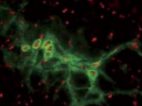
Chondroitinase
The biological activity of chondroitinase enzymes are due to their ability to act on chondroitin sulfate (CS) and dermatan sulfate (DS) chains of chondroitin sulfate proteoglycans (CSPGs). CSPGs are needed for normal functioning of the body; with increases or decreases in the level of CSPGs associated with various pathological conditions. Chondroitinase ABC from Proteus vulgaris can be useful in conditions where there is an increase in the level of CSPGs, namely spinal cord injury, vitreous attachment, and cancer. Over the last decade, various animal studies have shown that chondroitinase ABC could be a good drug candidate.
AMSBIO provides chondroitinase ABC (purified from Proteus vulgaris), as well as chondroitinase ACI and chondroitinase B (both from Flavobacterium heparinum). These offer targeted digestion of different sulfation patterns of chondroitin sulfate/dermatan sulfate.
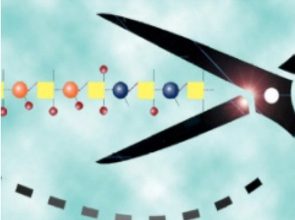
Assays and Kits
Heparanase and Hyaluronidase Activity Kits
We offer Razie assay kits for measuring heparanase and hyaluronidase enzyme activity in cell culture supernatants, human plasma, biological fluids, and tissue samples. Our kits have been used in studies on anti-inflammatory responses, kidney disease, and cancer.
The enzymes heparanase and hyaluranidase both play essential roles in the extracellular matrix (ECM). Our kits solve the standardisation and performance issues associated with traditional measurement techniques for these types of enzymes.
Martin et al. ( 2015, 2017) used our heparanase activity assay in conjunction with one of our heparanase ELISAs to measure both the quantity and activity of heparanase enzymes in their system.
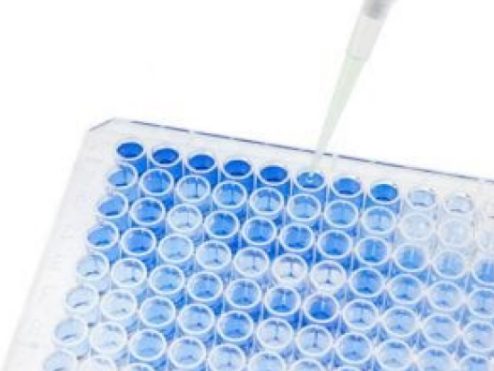
ELISA Kits
The enzyme-linked immunosorbent assay (ELISA) is a biochemical test used to detect and quantify compounds such as proteins, peptides, hormones, and antibodies. ELISA is a critical diagnostic tool in both biotechnology and medicine because it uses highly specific antibody-antigen interaction.
We offer a wide range of ready-to-use ELISA kits for usage with a wide range of species, target proteins, and sample types, including glycobiology ELISA kits. We provide glycosaminoglycan ELISA kits, such as Heparan Sulfate, Chondroitin Sulfate, Dermatan Sulfate, Keratan Sulfate and Hyaluronic Acid Quantification Kits.
Other Kits
Heparin Red® Kit
The Heparin Red Kit is a sensitive and robust assay, used for the direct detection and quantification of heparin in human blood plasma at concentrations in µg/mL, not the effect of heparin on the clotting cascade. Furthermore, the versatility of the heparin red kit can be useful for detection of non-anticoagulant heparins and other sulphated polysaccharides.
Heparin Red® Ultra Kit
The Heparin Red® Ultra is a simple and direct assay for measuring chemical heparin in complex matrices. The kit is ideal for testing heparin concentrations in crude animal extracts and will be highly valuable to the heparin manufacturing sector. Heparin Red® Ultra was found to suppress nucleic acid interference and detect heparin in urine.
Sulfated GAG Quantification Kit
The Sulfated Glycosaminoglycan Quantification Kit uses the metachromatic dye 1, 9‐dimethylmethylene blue (DMMB) to quantify the amount of sulfated GAGs in the standard and test samples. Samples may need a preliminary digestion step with our 280560-TDK kit to remove the protein portion of proteoglycans.
Tissue Digestion Kit for GAG Isolation
The Tissue Digestion Kit for Glycosaminoglycan Isolation is designed to digest small tissue samples, serum, plasma and other biological fluids to enable measurement of glycosaminoglycans with our 280560-N kit, by removing the protein portion of proteoglycans (papain digestion step).
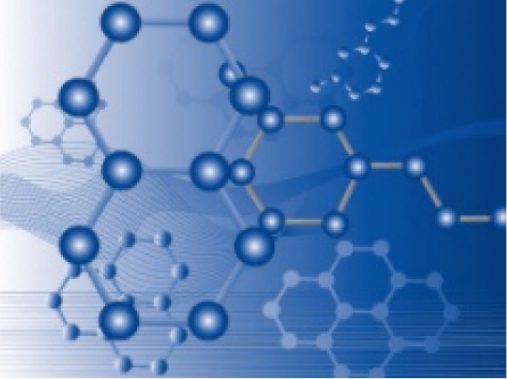
Carbohydrates
We provide carbohydrates of glycosaminoglycans (GAGs) with full length polysaccharides, oligosaccharides, and disaccharides for glycobiology research. We offer GAGs with high-grade purified heparan sulfate, chondroitin sulfate, dermatan sulfate, keratan sulfate, and hyaluronic acid standards from several sources.
Glycoselective Bioaffinity Lectins
Plant-derived Lectins
Lectins are carbohydrate-binding proteins with high specificity for specific sugar moieties. Lectins are useful for not only physiological and functional studies but also for research on complex carbohydrate sugar chains. We offer vast diversity of plant-derived lectins products that are compatible with general-purpose mechanisms, have rapid analysis, and can analyze sugars with HPLC.
Recombinant Prokaryotic Lectins
We provide Recombinant Prokaryotic Lectins (RPLs) of exceptional quality for use as glycoselective tools. Mutagenesis methods were used to expand the product range, resulting in novel RPLs with improved carbohydrate-binding properties. RPLs make it possible to analyze intact glycosylated biomolecules in a simple, rapid, and sensitive way. Many of the issues previously linked to plant-derived lectin products are overcome by recombinant technology. However, plant-derived lectin products offer many advantages as glycoanalytical tools, they still carry with them many limitations.
